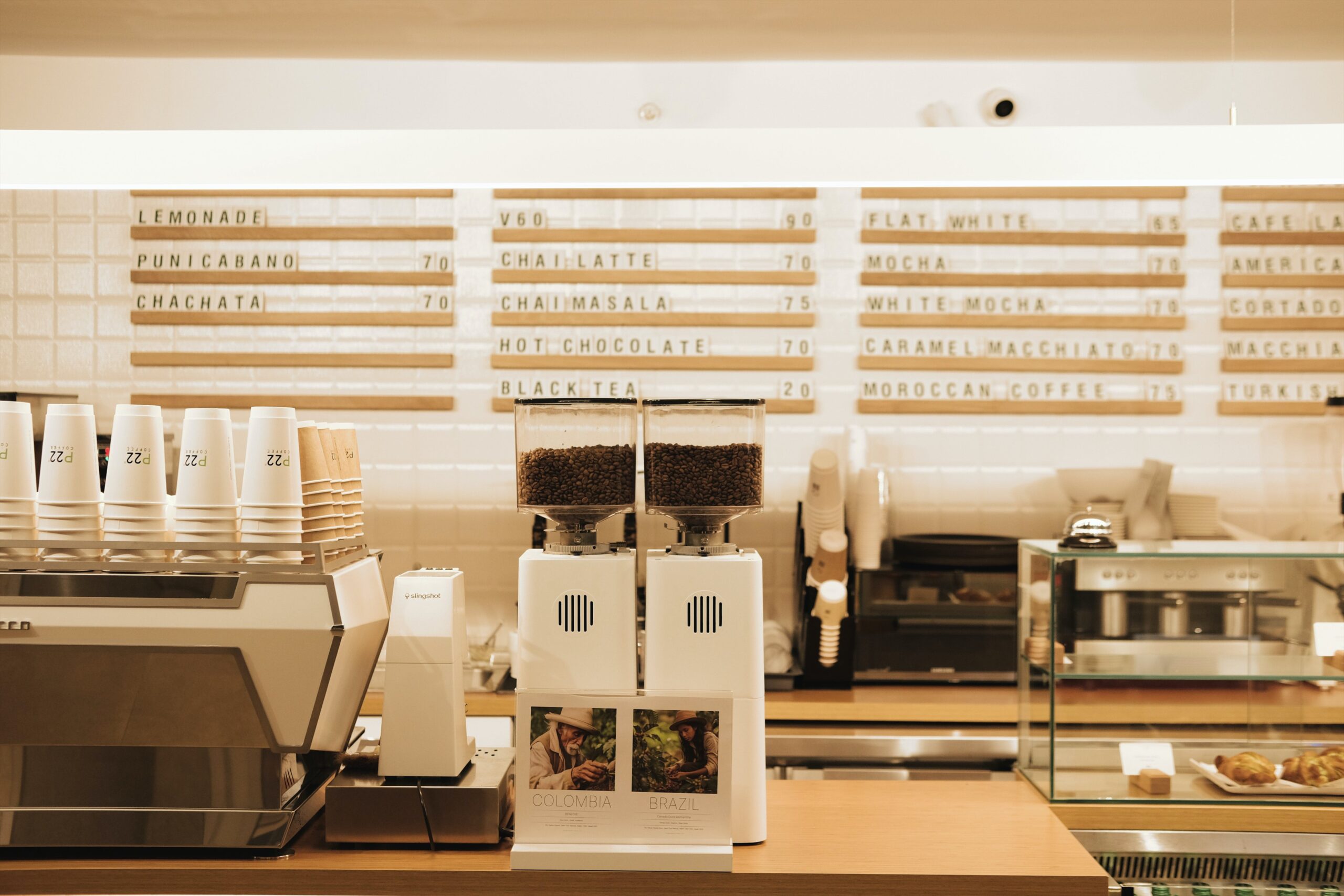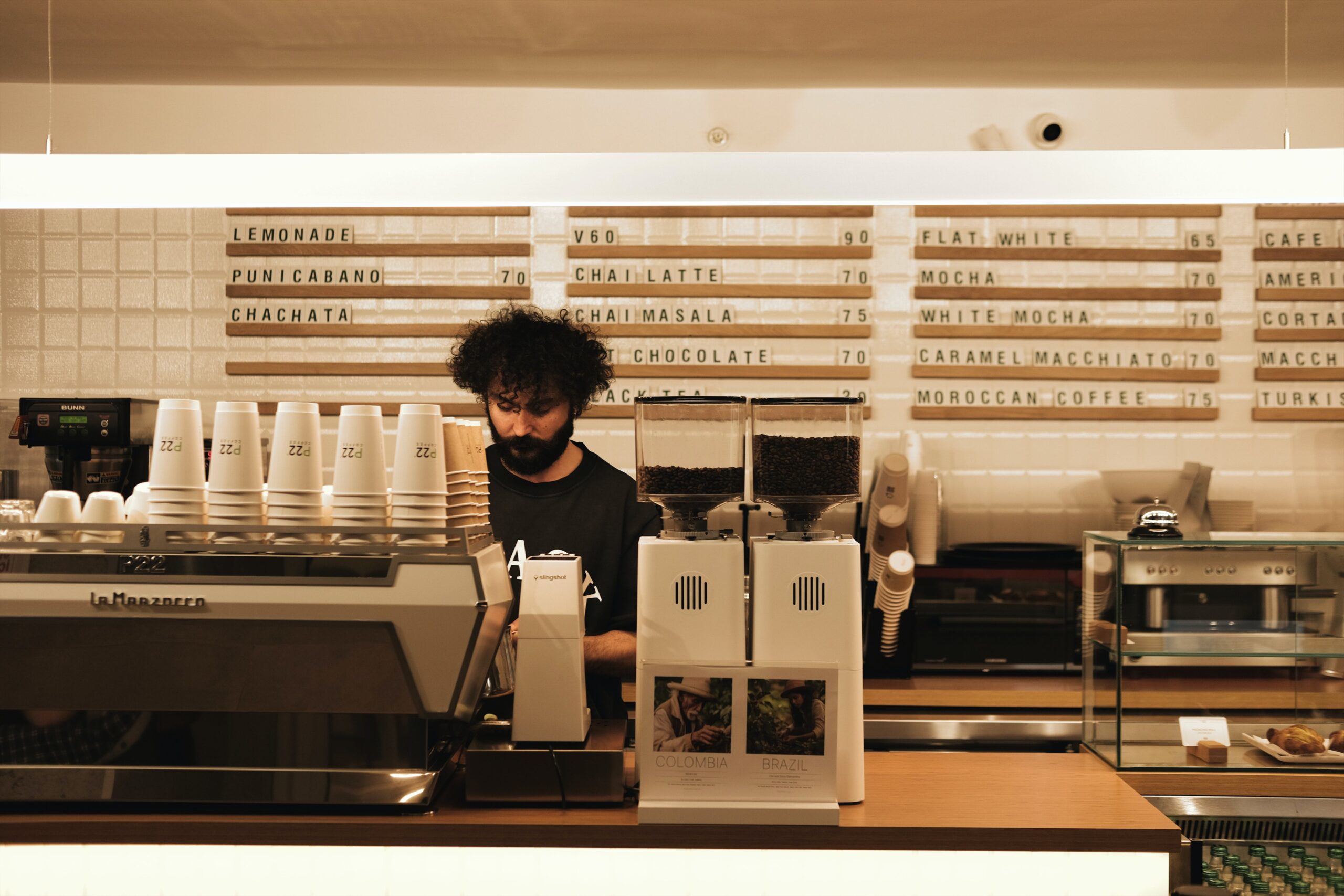In the world of coffee and poetry, there exists a magical connection that ignites the senses and stirs the soul. At HopaCoffee.com, we invite you to embark on a journey that intertwines the richness of coffee with the beauty of poetic expression. Join us as we explore the captivating dance between these two art forms, delving into the mesmerizing aromas, velvety textures, and lyrical inspirations that coffee effortlessly infuses into the realm of poetry. Discover how a simple sip of your favorite brew can transport you to a world of words, where every stanza resonates with the warmth and complexity found within a perfectly brewed cup of coffee.
The Historical Relationship Between Coffee and Poetry
Coffeehouses as Gathering Places for Poets and Writers
Coffeehouses have long been regarded as havens for creativity and intellectual discourse, attracting poets and writers throughout history. These establishments provided an environment that fostered collaboration and the sharing of ideas. In the 17th and 18th centuries, coffeehouses played a crucial role in the development of literary culture, serving as meeting places for poets and writers to discuss their works, engage in debates, and exchange literary knowledge. These vibrant spaces became known as “penny universities” due to the affordable price of a cup of coffee and the wealth of knowledge that could be acquired within their walls.
Coffee as a Stimulant for Creativity and Focus
Coffee, with its invigorating effects, has been revered as a stimulant for creativity and focus. Its ability to increase alertness and sharpen cognitive function has made it a cherished companion for many poets. The caffeine in coffee acts on the central nervous system, enhancing mental clarity and providing an energizing boost. It is no wonder that poets have sought solace in a cup of coffee, relying on its ability to banish fatigue and awaken their creative spirit.
Coffeehouses as Venues for Poetry Readings
Coffeehouses have not only been instrumental in bringing poets together but also in providing platforms for them to share their work. These establishments have served as intimate settings where poets could recite their verses and captivate audiences with the power of their words. From the early coffeehouses of London to the bustling cafes of Paris, poetry readings have thrived in these vibrant spaces, adding to the allure and enchantment of the coffeehouse culture.
The Influence of Coffee on Literary Movements
The Enlightenment and the Coffeehouse Culture
The Enlightenment, a period marked by intellectual curiosity and the desire for knowledge, found a natural home in coffeehouses. These establishments became hotbeds of philosophical and political discourse, attracting thinkers, writers, and poets alike. The coffeehouse culture of the Enlightenment fostered an environment of free and open exchange of ideas, leading to the development of new literary movements and the spread of radical thinking. The vibrant ambiance of these coffeehouses provided a platform for poets and writers to challenge societal norms and ignite a revolution in literature.
The Beat Generation and Coffeehouse Poetry
The Beat Generation, a literary movement that emerged in the 1950s, found inspiration and solace in the bohemian atmosphere of coffeehouses. These countercultural poets, including Allen Ginsberg, Jack Kerouac, and Lawrence Ferlinghetti, sought refuge in the laid-back and eclectic coffeehouse scene. The Beat poets used coffeehouses as spaces for open mic nights, where they could perform their rebellious and experimental poetry to like-minded individuals. The raw energy and nonconformist spirit of the Beat Generation blossomed in the intimate settings of coffeehouses, forever intertwining coffee with their poetic legacy.
The Connection Between Coffee and the Romantic Movement
The Romantic Movement of the late 18th and early 19th centuries emphasized the importance of individuality, emotion, and imagination, ideals which often found expression in coffeehouses. The contemplative and introspective nature of Romantic poetry found a natural companion in coffee, as poets sought solitude and inspiration in these establishments. Coffeehouses became a refuge for poets like Samuel Taylor Coleridge, who found respite from the chaos of everyday life within the aromatic confines of the coffeehouse, allowing their thoughts to flow freely and shaping the course of Romantic literature.

Famous Poets Who Were Inspired by Coffee
Honore de Balzac and his Love for Strong Coffee
Honore de Balzac, the renowned French novelist and playwright, was an ardent lover of strong coffee. Balzac famously claimed that coffee was the “vessel of inspiration” and relied on its invigorating properties to fuel his creativity throughout his prolific writing career. It is said that Balzac consumed upwards of fifty cups of coffee a day, fueling marathon writing sessions that produced some of his most celebrated works. His love affair with coffee is evident in his writing, where he often incorporates vivid descriptions of the sensory experience and the stimulating effects of the beloved beverage.
Pablo Neruda and His Ode to Coffee
Pablo Neruda, the revered Chilean poet and Nobel laureate, paid homage to coffee in his enchanting poem, “Ode to Coffee.” In this lyrical masterpiece, Neruda beautifully captures the essence of coffee, describing it as “the natural force that makes us open our eyes, / knocks on our door and suddenly / it’s there, for us to drink.” Neruda’s ode showcases the deep connection between coffee and poetic inspiration, as he praises the beverage as a source of warmth, vitality, and creative awakening.
Ella Wheeler Wilcox and the Power of Coffee in Poetry
Ella Wheeler Wilcox, an influential American poet and journalist, recognized the power of coffee to invigorate the creative process. In her poem “Coffee and Tea,” Wilcox aptly compares the two beverages, highlighting the energizing and inspiring qualities of coffee. She writes, “Coffee is black as the devil, / Hot as hell, / Pure as an angel, / Sweet as love.” Through her poetry, Wilcox beautifully portrays coffee as a catalyst for emotional expression and a companion that elevates the poetic experience.
The Symbolic Meanings of Coffee in Poetry
Coffee as a Metaphor for Love
Coffee has long been used as a metaphor for love in poetic expressions. Its warmth and richness evoke feelings of comfort, desire, and intimacy. Poets often liken the allure of coffee to the enchantment of love, emphasizing its ability to awaken the senses and ignite passion. Whether it’s the aroma of freshly brewed coffee or the lingering taste on the lips, coffee as a metaphor for love enriches poetry with its sensual and captivating qualities.
Coffee as a Source of Energy and Inspiration
In poetry, coffee is revered as a source of energy and inspiration. Its ability to provide a jolt of vitality and awaken the mind makes it a fitting symbol for creative power. Poets often draw upon the energizing effects of coffee to convey the surge of ideas and emotions that flow through their veins. Coffee becomes a conduit for inspiration, propelling poets to explore the depths of their imagination and craft verses that resonate with readers.
Coffee as a Reflection of the Human Experience
Coffee has become a symbol of the human experience in poetry, reflecting the highs and lows, the joys and sorrows of life. Poets weave references to coffee into their verses to capture the essence of shared moments, intimate conversations, and the passage of time. As poets ponder the complexities of existence, coffee serves as a tangible representation of the everyday rituals and simple pleasures that shape our lives.

Coffeehouses as Hubs for Creative Communities
The Role of Coffeehouses in Fostering Artistic Exchange
Coffeehouses have historically served as hubs for artistic communities, providing a space where poets, writers, and artists could come together and exchange ideas. These establishments offered a sense of community and camaraderie, allowing individuals with a shared passion for creativity to connect and collaborate. The lively and intellectually charged atmosphere of coffeehouses nurtured artistic growth, inspiring poets to push boundaries and develop new forms of expression.
The Impact of Coffeehouse Culture on Poetry Movements
Coffeehouse culture has greatly influenced various poetry movements, shaping their themes, styles, and philosophies. From the intellectual discourse of the Enlightenment to the free-spirited nature of the Beat Generation, coffeehouses have played a defining role in the evolution of poetry. These cultural hotspots fueled the revolutionary spirit of poets, inspiring them to challenge societal norms, experiment with new poetic forms, and forge new paths in literature.
How Coffeehouses Continue to Support and Inspire Poets Today
In the digital age, coffeehouses remain steadfast in their support of poets and continue to inspire creativity. These modern-day oases provide a sanctuary for writers seeking respite from the distractions of the virtual world. Coffeehouses serve as gathering places for open mic nights, poetry slams, and writing workshops, fostering a sense of community and offering opportunities for poets to showcase their work. With their inviting ambiance and aromatic brews, coffeehouses create an environment that ignites the poetic flame and keeps the tradition of coffee and poetry thriving.
Coffee Rituals and their Influence on the Poetic Process
The Morning Coffee Routine as a Catalyst for Creativity
For many poets, the morning coffee routine acts as a catalyst for creativity. The act of brewing and savoring a cup of coffee becomes a ritual that signals the start of a productive day of writing. The quiet solitude of this early morning ritual provides a moment of reflection and preparation, setting the stage for poetic inspiration to flow. As the comforting aroma of coffee fills the air, poets find solace and inspiration, ready to embark on their creative journey.
Coffee as a Companion during the Writing Process
Coffee has long been a trusted companion of poets during the writing process. Its comforting warmth and familiar taste provide a sense of comfort and company as poets embark on their poetic endeavors. Whether it’s the gentle buzz of a coffee shop or the quiet hum of a home office, the presence of a cup of coffee instills a sense of focus and discipline, guiding poets through the twists and turns of their creative process.
The Ritual of Coffee Breaks and its Effects on Inspiration
Coffee breaks have become a cherished ritual for poets, offering a much-needed reprieve from the intensity of the writing process. These moments of respite, accompanied by a steaming cup of coffee, allow poets to recharge and reflect. The brief pause in writing fosters clarity of thought, allowing ideas to percolate and giving way to new insights and fresh perspectives. Coffee breaks become moments of inspiration, rejuvenating poets and fueling their creative fire.

The Aesthetic of Coffee in Poetry
Descriptive Imagery of Coffee in Poems
Poets often employ vivid and descriptive imagery to capture the essence of coffee in their poems. From the aromatic scent of freshly brewed coffee to the ebony darkness of a rich espresso, the sensory experience of coffee comes to life through evocative language. Poets paint pictures with their words, transporting readers to bustling coffeehouses or cozy corners where the aroma of coffee lingers in the air, indulging in the beauty of the coffee aesthetic.
Comparisons between Coffee and Other Sensory Experiences
Poets draw captivating comparisons between coffee and other sensory experiences, infusing their verses with layers of meaning and emotion. The velvety texture of a latte becomes a metaphor for tenderness, while the bitter taste of black coffee resonates with life’s hardships. By juxtaposing the sensory elements of coffee with other facets of the human experience, poets elevate their verses and evoke a range of emotions that resonate with readers on a deeper level.
The Interplay of Coffee and Language in Poetry
Coffee and language intertwine in poetry, creating a harmonious dance that enhances the impact of the written word. Poets craft verses that mimic the rhythm and flow of coffee pouring into a cup, adopting the cadence and tempo of the brewing process. The rich vocabulary associated with coffee, such as “aroma,” “bitter,” and “rich,” infuses poetry with a sensory experience that engages readers and leaves a lasting impression. Coffee becomes a muse, enriching the language of poetry and amplifying its poetic power.
Coffee’s Connection to Literary Cafes
Famous Cafes that Nurtured Poetic Communities
Literary cafes have long served as gathering places for poets, fostering communities where creativity can flourish. Cafes such as Café de Flore and Les Deux Magots in Paris, The Eagle Coffee House in London, and Café Central in Vienna became iconic landmarks where poets, writers, and intellectuals congregated. These literary cafes provided a sanctuary for poets to share ideas, engage in spirited conversations, and draw inspiration from like-minded individuals. The rich history of these establishments continues to captivate the imagination of poets and inspire the next generation of literary greats.
The Role of Coffee in Literary Cafe Culture
Coffee plays a central role in the vibrant culture of literary cafes. It is the elixir that fuels the intellectual and artistic pursuits of patrons, setting the stage for enlightening conversations and creative breakthroughs. As poets huddled over a cup of coffee, they found solace in the comforting embrace of the cafe, where ideas flowed freely and literary masterpieces were born. In literary cafes, coffee is more than just a beverage; it is the lifeblood that sustains the creative soul.
How Literary Cafes Inspire Poets to Create
Literary cafes serve as wellsprings of inspiration for poets, offering an immersive experience that ignites the imagination. The cozy ambiance, the aroma of freshly brewed coffee, and the gentle buzz of conversations create an environment that nurtures creativity. Poets find inspiration in the bustling energy of the cafe, observing the comings and goings of patrons, eavesdropping on conversations, and absorbing the atmosphere. Literary cafes become sanctuaries where poets can delve into the depths of their thoughts, penning verses that embody the spirit of the cafe and the essence of coffee.

Poetry Contests and Events Celebrating Coffee
National Poetry Month Celebrations
National Poetry Month, celebrated in April, provides a platform for poets and poetry enthusiasts to come together and celebrate the power of verse. During this month-long celebration, coffeehouses and cafes often host poetry readings, open mic nights, and workshops, highlighting the connection between coffee and poetry. These events serve as a showcase for emerging poets, fostering a sense of community and encouraging the exploration of diverse poetic voices.
Coffee-themed Poetry Competitions
Coffee-themed poetry competitions offer poets an opportunity to express their love for coffee through verse. These competitions often challenge poets to explore the multifaceted relationship between coffee and the human experience, inviting them to delve into the sensory, emotional, and cultural dimensions of coffee. Such events not only celebrate the artistry of poetry but also pay homage to coffee’s enduring presence as a muse for creative expression.
Poetry Readings in Coffeehouses and Cafes
Coffeehouses and cafes continue to be popular venues for poetry readings, providing a stage for poets to share their work with a captive audience. These readings create a sense of intimacy, as poets connect with listeners on a personal level, sharing their journey of inspiration and inviting them into their poetic world. Coffeehouses, with their warm and inviting ambiance, serve as the perfect backdrop for these readings, elevating the sensory experience and deepening the appreciation for both coffee and poetry.
The Future of Coffee and Poetry
Exploring New Coffee Trends and Their Impact on Poetry
As the world of coffee continues to evolve, so too does its impact on poetry. Emerging coffee trends, such as specialty brews, cold brews, and experiential coffee experiences, offer new avenues for poetic exploration. Poets may find inspiration in the unique flavors, brewing techniques, and cultural nuances associated with these trends, infusing their verses with a fresh perspective and novel sensory experiences.
The Role of Technology in the Coffee and Poetry Connection
Technology has transformed the coffee and poetry connection, offering new ways for poets to express themselves and engage with audiences. Social media platforms and online poetry journals have enabled poets to share their work with a global audience, fostering a sense of community and expanding the reach of their poetry. Additionally, coffee-related apps and websites provide access to information on the latest coffee trends, brewing techniques, and coffeehouse events, ensuring that poets remain well-informed and connected to the coffee culture that inspires them.
How Coffee and Poetry Will Continue to Evolve Together
The enduring relationship between coffee and poetry will continue to evolve as poets push boundaries and explore new forms of expression. As coffee evolves, embracing sustainability, fair trade practices, and technological advancements, poets will reflect these changes in their verses, engaging with issues of social justice, environmental consciousness, and the ever-evolving human experience. Coffee and poetry will remain intertwined, inspiring each other and captivating the senses, as poets continue to find solace and inspiration in the ritual of a cup of coffee.


